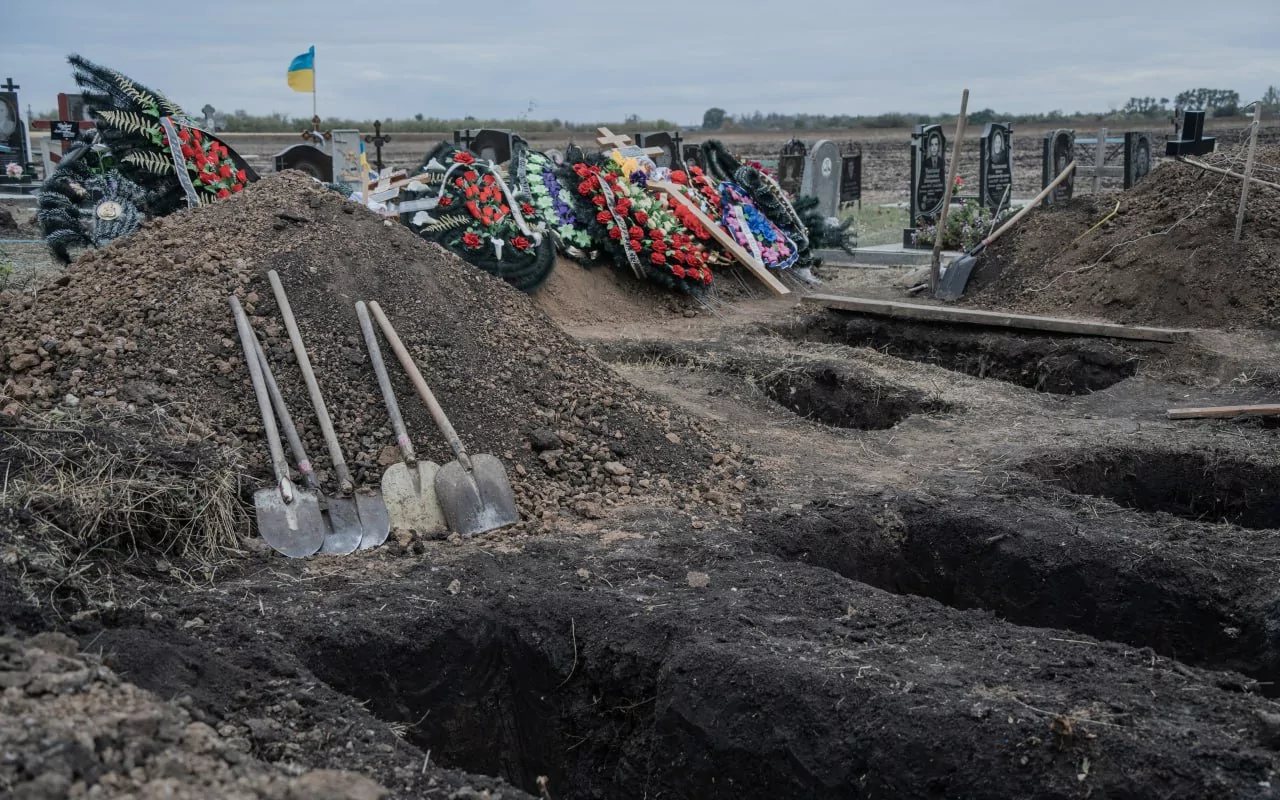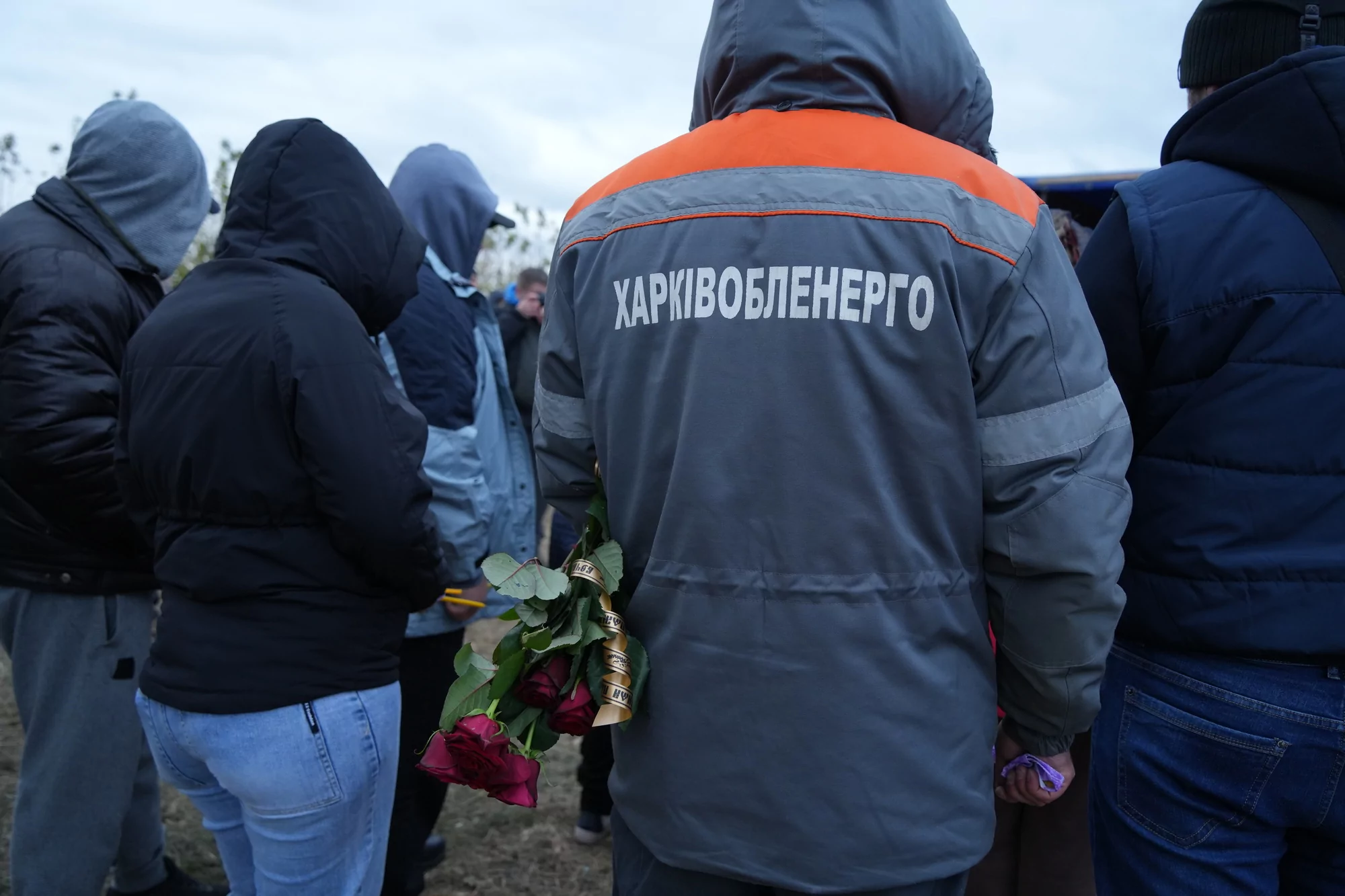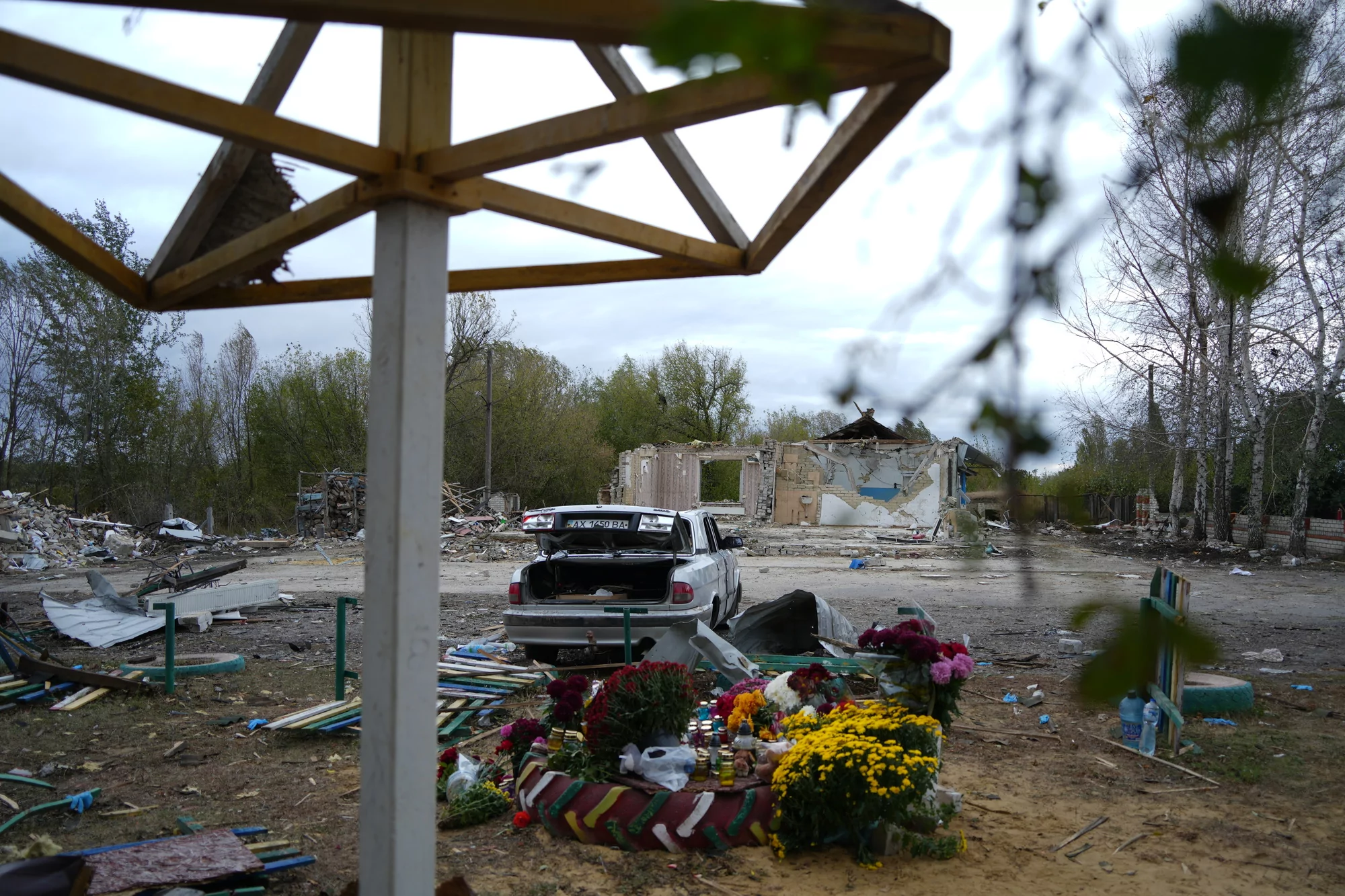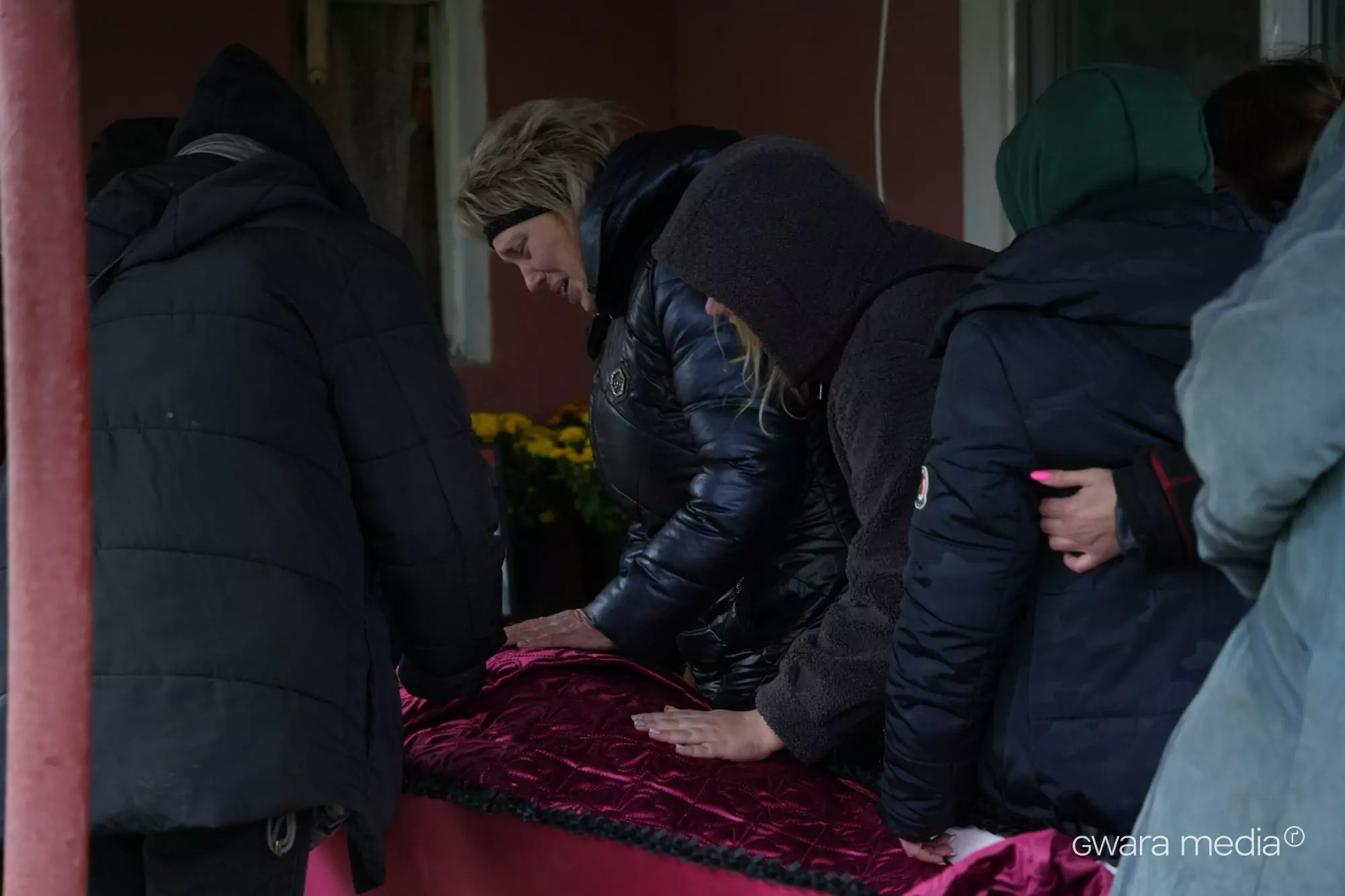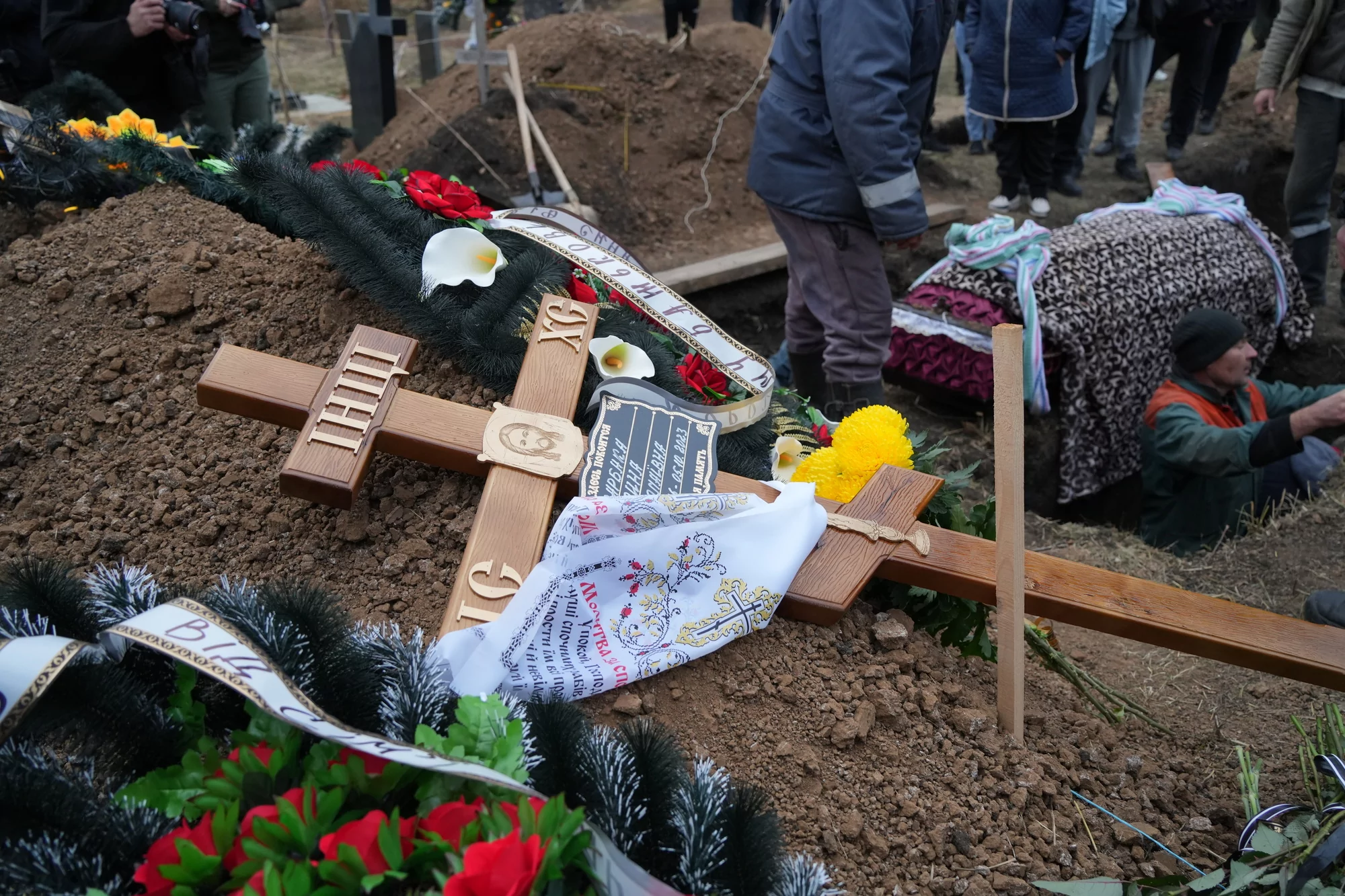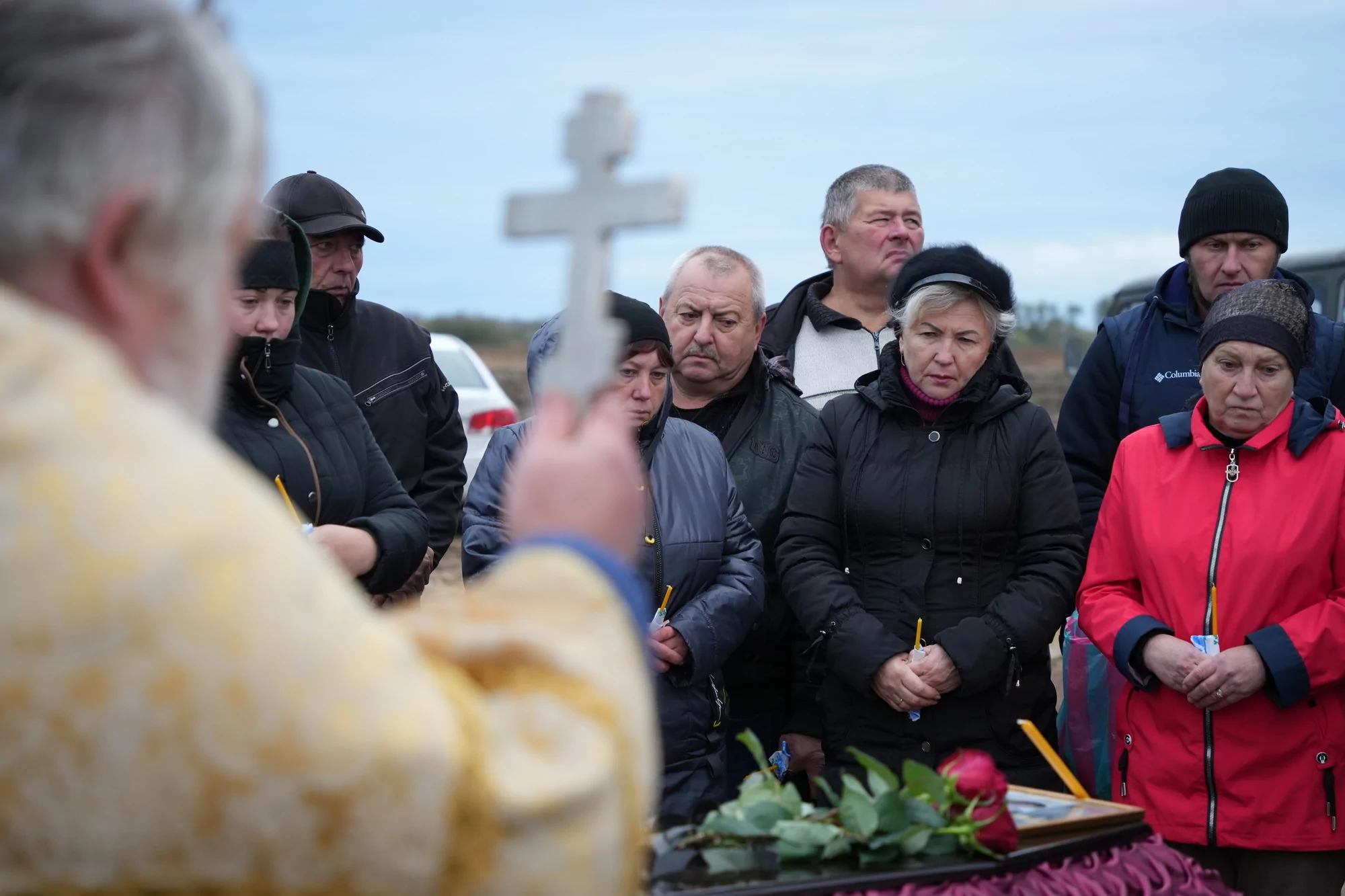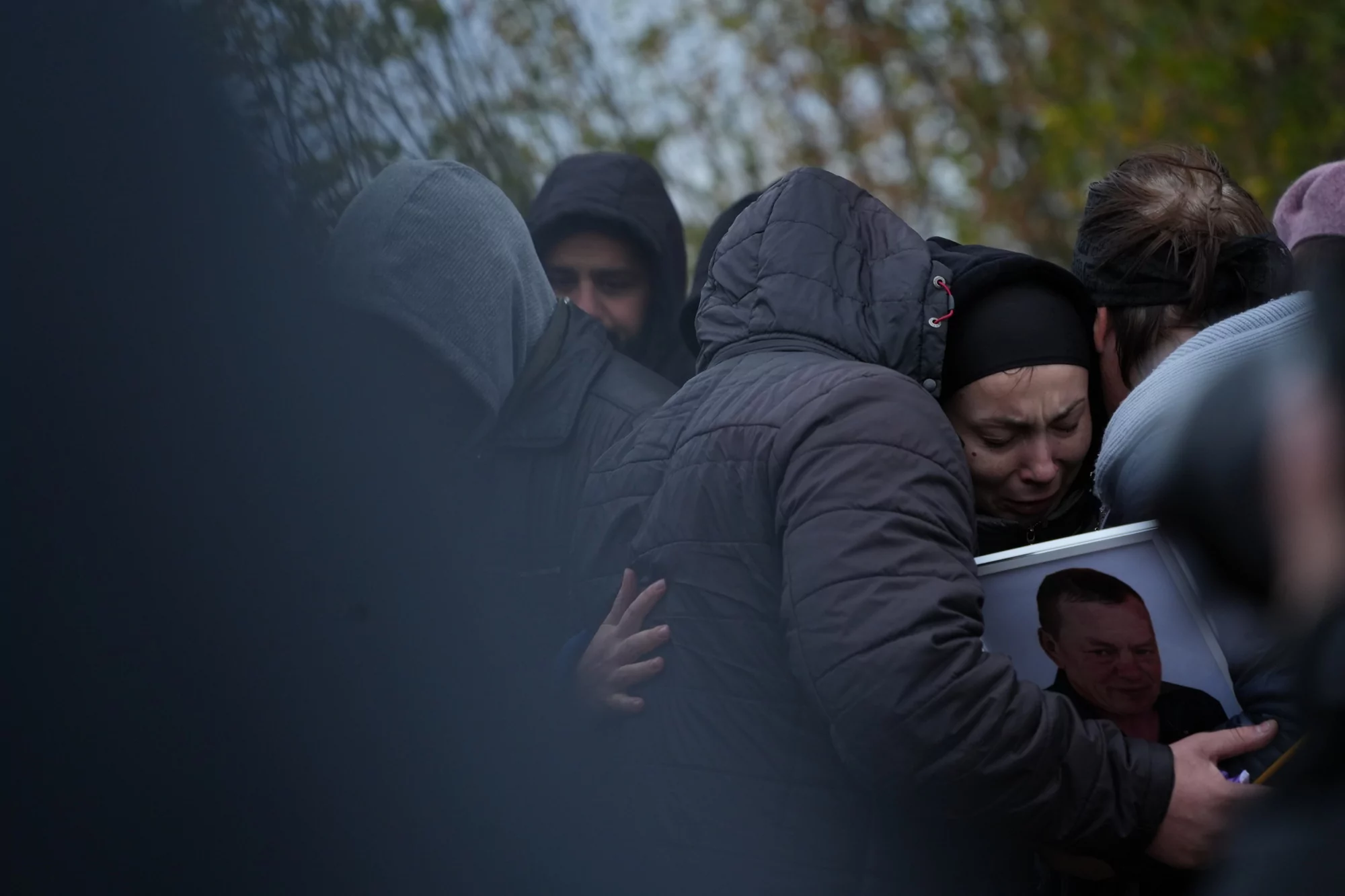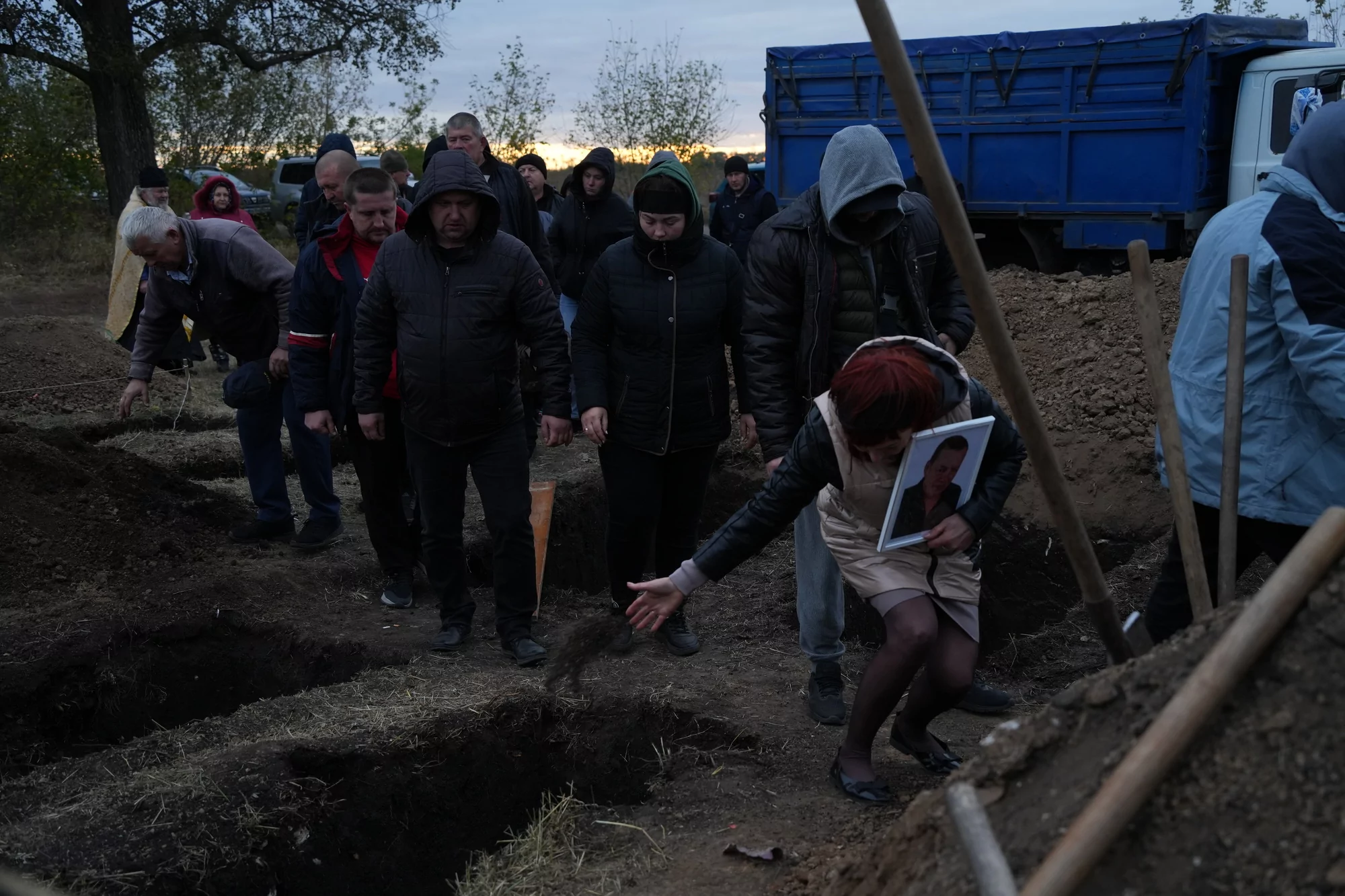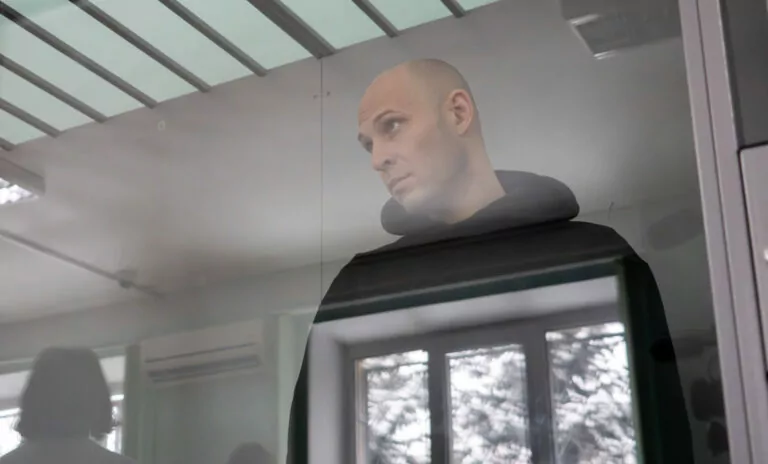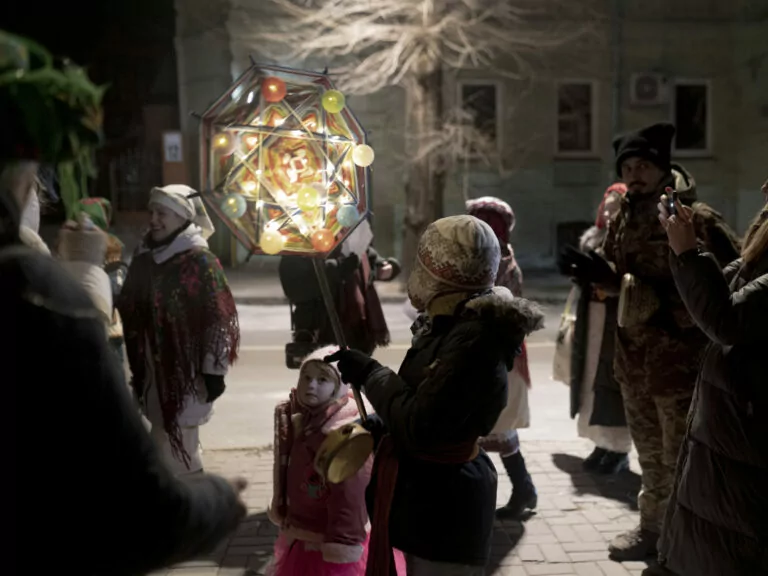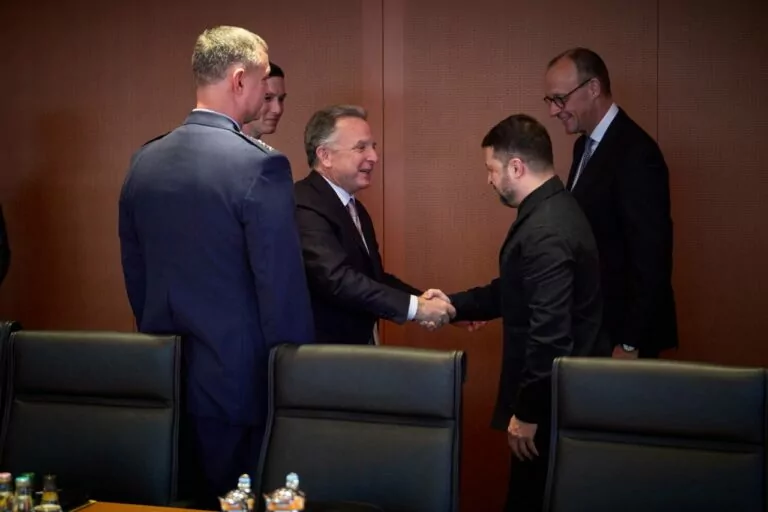Around 13:25 on October 5, the Russian army shot a missile at a café in the Hroza village of Kupiansk district. People have gathered there for a funeral of a fallen soldier. Hroza has 330 residents, but around 100 of them lived there when the tragedy happened. That day, at least 52 people died, six were injured, and another five are now considered missing. An Iskander hit took the lives of almost every second villager.
Hroza begins with a cemetery
The first dead in a missile strike were buried on October 7. The day before, the digging of 40 graves began at the village cemetery.
“Utility workers from around the entire district came here,” the funeral bureau workers say. “A first burial ended literally 10 minutes ago. Right now, the three of us are working, but the guys will come to help us to the beginning of the next funeral.”
[In Ukrainian, “hroza”, the name of the village, means “thunderstorm,” — editor’s note]
Since the day the missile hit, two to five people have been buried here daily. The funerals are held in two cemeteries: in Hroza and the neighboring village. The funeral bureau workers finish digging the grave.
“Let’s go! The next burial is in an hour — we need to prepare two graves.”
Site of the missile strike
Investigators don’t work on the site of the missile strike anymore — only a building, reduced to dust, reminds about the tragedy that took the lives of more than 50 people. The locals bring flowers and toys here, and the relatives of the dead come to be alone.
“On October 5, four brigades arrived to put out the fire,” reminisces a local, Vasyl Andriyovych. “My house is across the road from the site of the missile hit. I’ve just gotten into the house when I heard the explosion.”
Vasyl Andriyovych and Pavlo Oleksiiovych say they knew almost everyone who died in a missile strike.
“Our friends, godparents [of our kids] were there. We live in the village; everyone knows each other,” Pavlo Oleksiiovych says. “Valierka Kozyr [a distant relative of the Kozyr family, that organized a wake hit by a missile, – e/n] lost four relatives that day, only his three grandchildren left.”
The soldier in whose honor the wake was gathered on October 5 died during the occupation of Shevchenkivska hromada. His name was Andriy Kozyr; he couldn’t be buried in Hroza. His son, Denys, demobilized from the army because of health issues, decided to rebury his father. Denys, his wife, grandmother, grandfather, and mother-in-law were all killed in a missile strike.
Coffins are carried into four houses; head-bent villagers wearing mourning black are standing near the gates. One by one, the priest goes into each home. A cry and a question hang in the air over the village yards, “Why you, why not me?”
Burial
Two coffins are carried to the cemetery. In the closed one, Iryna Kharbaka is being buried; in the open, lies Olexandr Khobak. Both of them died in a missile hit on October 5.
Written by Viktoria Mankovska
Translated & edited by Yana Sliemzina
Read more
Gwara Media is the only local English reporting from Kharkiv and Kharkiv region – you can support us with a coffee.
